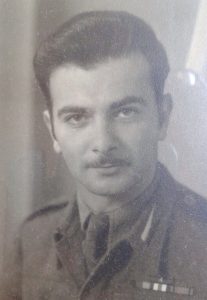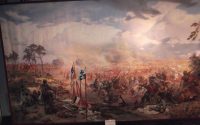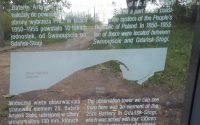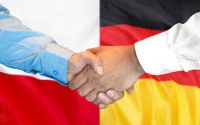1989
Real nationality is humanity, its passport – DNA, its citizenship – Earth.
This blog began as a search for my paternal family history but developed into something else. Join me in my journey and then enjoy your own personal journey if you chose to make it.
Dedicated to the memory of my father Richard (Ryszard Bogusław) Pach.

Keeping the story alive.
1989
It might all have been very different. The fall of the Berlin Wall and subsequently the collapse of Communism in Central Europe came too late for my father who died in 1990 after a short illness. A dual national, he held citizenship of his adopted country, Britain and his native Poland but had a richly diverse ethnicity which, in addition to Polish, included Armenian, German and Hungarian.
He, like many other nationals fleeing war torn Europe in 1940, had joined the newly formed Polish Army, first in France and then Britain and, in 1944 served in France, Belgium, Holland and Germany . Like many other nationals from the Central European counties liberated by the Red Army of the USSR; aware that a Stalinist regime would be installed, he never returned to Poland immediately after World War 2. By 1947 he had lost all contact with his family left behind in Poland. He had also met and married my Scottish mother the same year and that was virtually that.
As we grew up, he would recount a few memories of Poland, about his parents (his father a professional in the Polish Army held the rank of major and his mother both a dentist and accomplished musician), sister, grandparents and cousins. He spoke of visiting his grandfather’s farm near Lwów, swimming in the river, fishing and high-jinxing with the other lads from the local village. His father’s commissions moved the family about from my father’s birth place of Lwów, to Krakow and Brest-Litovsk, cities now within the boundaries of Ukraine, Poland and Belarus respectively.
Due to the post war political situation we were never able to visit these far away places where we might have been able to add tangible context to my father’s stories. They remained figments of the imagination and it seemed it would be that way forever. Those determined enough to visit their homelands behind, what was called, the Iron Curtain were cautious enough not to make to many in-depth enquires lest any relatives still there incurred the suspicions of the authorities, even though Communist Poland had a relatively relaxed attitude, by comparison to East Germany or the USSR, to visitors from the West.
I visited Poland as a participant in a student summer camp initiative in 1967 during the Communist years with a school friend Frank Baran, whose father was also Polish. This was Frank’s third visit and I was grateful for his background knowledge of what to expect and more than grateful for the immense hospitality shown by his Aunt Barbara in Warsaw. She was able to exchange our pounds for the Polish zlotys which fetched 200 for the pound on the black market as opposed to the official rate of 65 or thereabouts. The experience was one of sampling life in a country which seemed bored, lethargic and steeped in the black market, wooden seats on trains and dirt cheap vodka, which I detested and continued to do so until a visit to Poland last year. But more of that in a future post. This place was not the picture my father had sketched but to be fair this was north east Poland, my father came from the south east so I felt I very little connection with my heritage. On my return, I wondered if my visit would rekindle my father’s curiosity of what became of his parents after 1947. Enquiries about his father through the International People Tracing Agency in Arolsen, West Germany met with obfuscation on the part of the authorities in Poland. My father reconciled himself to his own held belief that his father had died in Germany around 1947. He had better success tracing his mother’s whereabouts, which began in Legnica in western Poland, then to Krynica, further south. In 1974, he decided it was time to go to Poland and my mother and sister accompanied him for support and, naturally, out of curiosity. He met with a family that had known his mother and received letters and photographs which my grandmother had requested be passed on to any member of the family who might one day come looking for her. She had spent the years from 1940-1942, as a prisoner in Siberia (more on this in future blogs.) She left Krynica in 1958 and it seems she ended up in a small town called Żory, near Krakow, where she died in 1960. My father seemed satisfied that he had achieved closure of a sort.
The election as Pope of Karol Wojtyla in 1974 ,the formation of the Solidarity trade union in Poland and less than ten years later the election of the reform-minded Mikhail Gorbachev as First Secretary of the Communist Party of the USSR gave rise to a chain of events which culminated in Berlin on 9th November. On TV, the world looked on in disbelief, my father included as ordinary Berliners began demolishing the infamous Wall. East and west Berliners mingled while soldiers of the East German army and border guards looked on passively while smoking cigarettes. A few weeks later as one Communist regime after another in Europe collapsed and travel normalised, my father spoke openly of going to spend a long summer in Poland a sentiment endorsed by my mother. It was too late.
End



Really interested Richard. Just started to read it. Regards Gerry